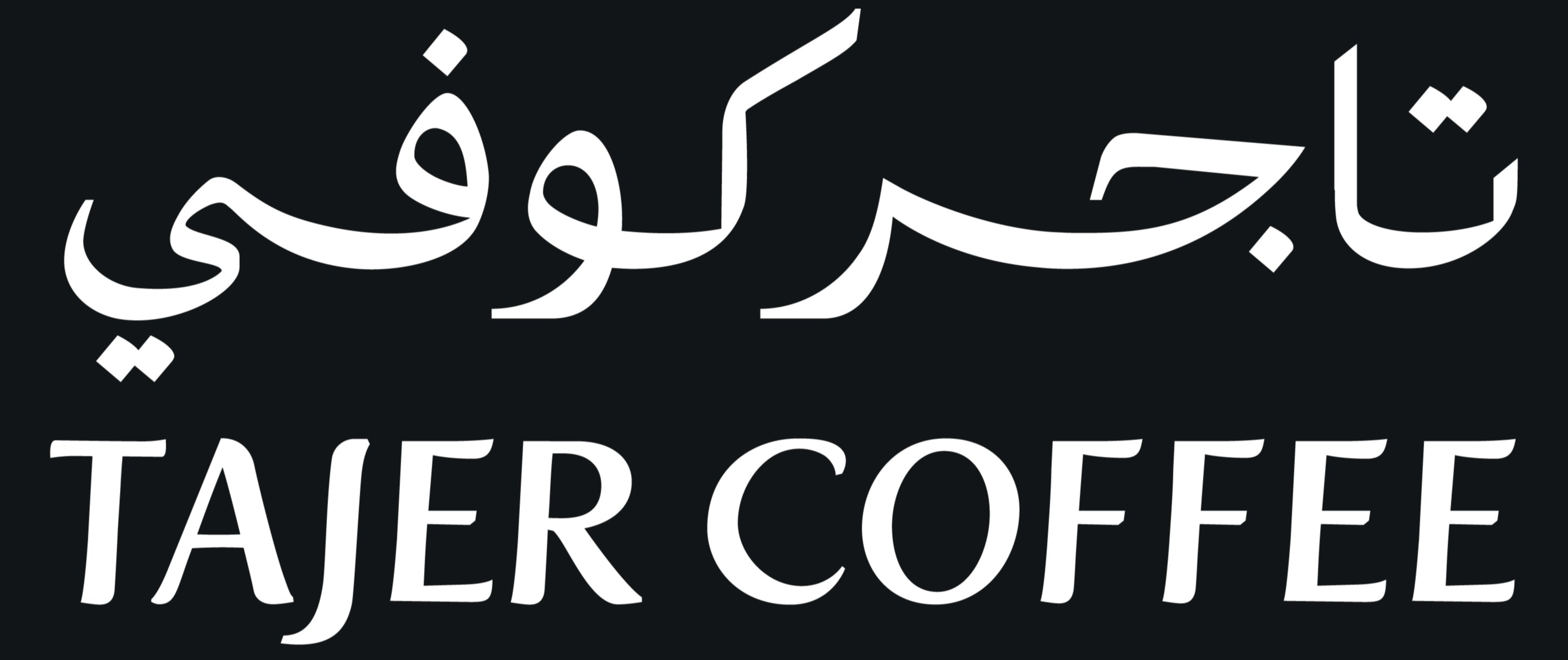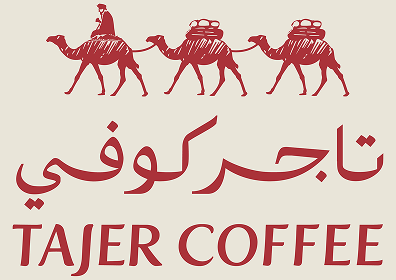
Gardelli- Kokeb Siwani,23/24 Crop (Ethiopia)
AED 110.00
Unit price perEstimated delivery between January 07 and January 09.
Ethiopia – Kokeb Siwani, Crop 23/24
Introduction
Step into the world of Ethiopia Kokeb Siwani, a natural-processed gem from the latest harvest. This coffee is a true sensory experience, offering a harmonious balance of floral, fruity, and tea-like notes. Every sip unveils a delicate yet complex flavor profile, making it a standout choice for those who appreciate clean, elegant, and expressive coffees.
Coffee Profile
- Producer: Kokeb Siwani
- Country: Ethiopia
- Region: TBA (Exact Region Pending)
- Altitude: TBA
- Variety: Ethiopian Heirloom
- Process: Natural
- Roast Profile: Light to medium, highlighting the clarity of fruit and floral notes
- Packaging: Box + Vacuum pack
Flavor Notes
- Primary Flavors: Lavender, Peach, Black Tea, Cherry
- Aroma: Floral and fruity, with hints of sweet spice
- Taste: A delicate lavender floral tone, followed by juicy peach and ripe cherry, rounded out with a refined black tea finish
- Body & Finish: Light to medium body with a smooth, tea-like mouthfeel and a clean, lingering finish
Brewing Recommendations
V60 (Conical Brewer):
- Coffee: 17g
- Grind Size: Medium-fine
- Water: 250g at 94°C
- Filter: Cafec Abaca+
- Brew Time: 2:20 minutes
Flat-Bottom Brewer (e.g., Kalita or Stagg X):
- Coffee: 17g
- Grind Size: Medium
- Water: 250g at 94°C
- Filter: Stagg [X] Fellow
- Brew Time: 2:15 minutes
Why Choose Ethiopia Kokeb Siwani, Crop 23/24?
This natural Ethiopian coffee is an exquisite representation of its origin, offering vibrant florals, juicy stone fruit sweetness, and a refined tea-like elegance. Its clean and well-balanced cup makes it an ideal choice for both espresso and filter brewing, ensuring a versatile and memorable coffee experience.
THE STORY BEHIND
We are delighted and proud to present you our new exquisite and unique signature lot - Kokeb Siwani, that will be, together with the Mzungu Project, the recurring feature of our offering.
Kokeb Siwani is Amharic for Stellar Swan. This name has been chosen by Rubens to reflect the two key features of this lot. First such feature is the origin - Ethiopia, the birthplace of Coffea arabica and, to this day, the home to some of the most outstanding coffee lots in the world. ’Stellar’ is the homage both to the star on Ethiopian national flag and a fitting description of many Ethiopian coffees. The swan is the symbol of Gardelli Specialty Coffees, the guarantee of quality and care and the expression of elegance we seek to bring in each cup.
Our aim with Kokeb Siwani is to bring to you the signature flavour profile of a classic natural Ethiopian coffee, with its fruity sweetness, crisp acidity, elegant flavours, and a clean finish. Over the years, natural Ethiopian lots from various producers have been a cornerstone of GSC's offerings. However, Rubens has noticed that finding lots of exceptional quality, processed using the classic natural method, has become increasingly challenging. As a result, he has made it his mission to seek out and deliver to you the best such lots he can find through collaboration with trusted producers and exporters, while also providing the comfort of a familiar, cherished taste, no matter what it takes.
The main reasons for the difficulty Rubens has encountered in sourcing classic dry-processed lots from Ethiopia are not related to natural causes - rather, they are to be sought in the trends in the specialty coffee market. Namely, anaerobic processing has been increasingly popular in the recent years. We surely love a cup of quality anaerobic, enjoyable in its extravagance. At the same time, Rubens believes this processing method has a downside of rendering a fairly standardised cup profile that obscures the origin of the beans, the varietal and terroir. In a quest to recover the appreciation for unique terroirs and for the age-old tradition of natural processing, we introduce this Signature Lot.
This year’s lot comes from Worka Wuri wetmill in Yirgacheffe. The mill processes cherries from around 650 local smallholder farmers who cultivate at elevations up to 2,100 masl. Worka Wuri has established itself a reputation for excellence, consistently producing some of the highest scoring Ethiopian coffees each season.
Worka Wuri washing station is located near the town of Gedeb, Gedeo zone, in Southern Ethiopia.
Over a number of years the region has developed a distinguised reputation for fine coffees, producing some of the most sought-after microlots in the world. The combination of high altitude, fertile soil, consistent and plentiful rains, and an abundance of local knowledge are all contributing factors to the high status of Yirgacheffe coffees.
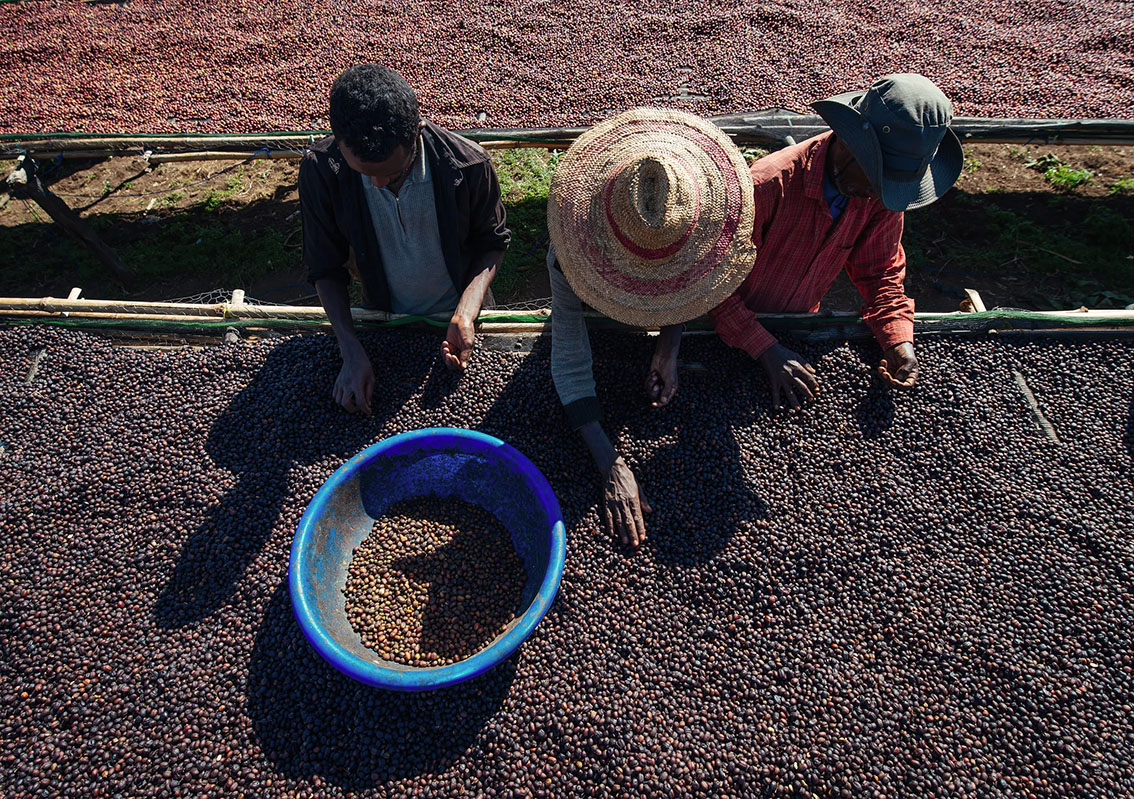
THE VARIETY
Ethiopian heirlooms, why the generic name? It's estimated that there are somewhere in-between six and ten thousand coffee varietals in Ethiopia. And due to this colossal figure, there hasn’t been the genetic testing to allow buyers to distinguish the varietal. With the cross pollination that naturally happens in the wild, the name "Ethiopian Heirloom" exists as a catch-all phrase to describe this happenstance. However, that really makes Ethiopian quite a mystery and an interesting mystery as each village or town could potentially have a different varietal which could carry very unique properties.
The local indigenous ‘heir-loom’ varietals - which grow wild in Ethiopia - are responsible for the unique flavour notes which make for an unusual but refined cup. When processed naturally through sun-drying these present with juicy and jammy stone-fruit flavours, floral and chocolate notes with a creamy body.
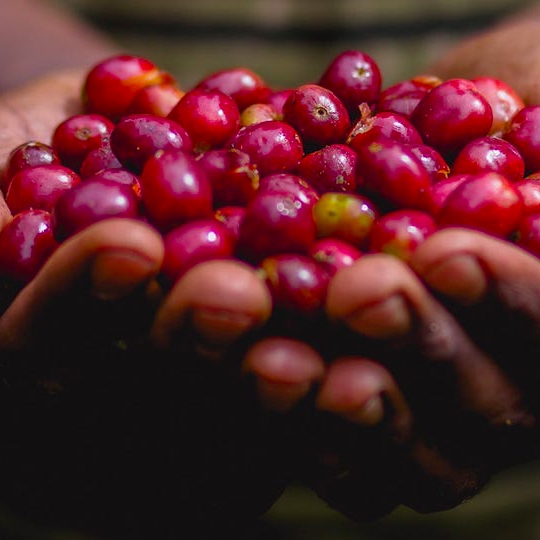
THE FERMENTATION PROCESS
Shade grown, ripe cherries are delivered to the mill for careful sorting, where only the ripest cherries are selected.
The cherries are dried in the sun on raised African beds for approximately 12-15 days. In the daytime they are raked and turned periodically to ensure a consistent drying process. During the day, the cherries are covered between 12pm and 3pm to protect them from sun damage and at night – from rainfall and moisture.
Once the coffee has dried to the right level, it is milled, graded, sorted and thoroughly handpicked, before being bagged in GrainPro for export from the port of Djibouti.
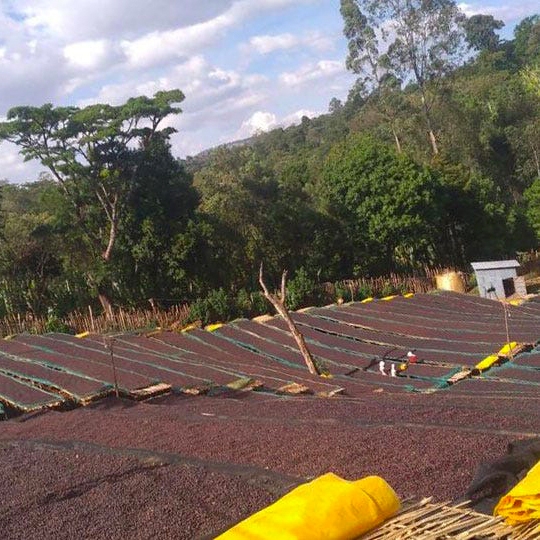
Share information about your brand with your customers. Describe a product, make announcements, or welcome customers to your store.
Share information about your brand with your customers. Describe a product, make announcements, or welcome customers to your store.
Recently viewed products

FAQs
Can I try the machines before purchasing?
Use this text to answer questions in as much detail as possible for your customers.
Use this text to answer questions in as much detail as possible for your customers.
Use this text to answer questions in as much detail as possible for your customers.
Use this text to answer questions in as much detail as possible for your customers.
